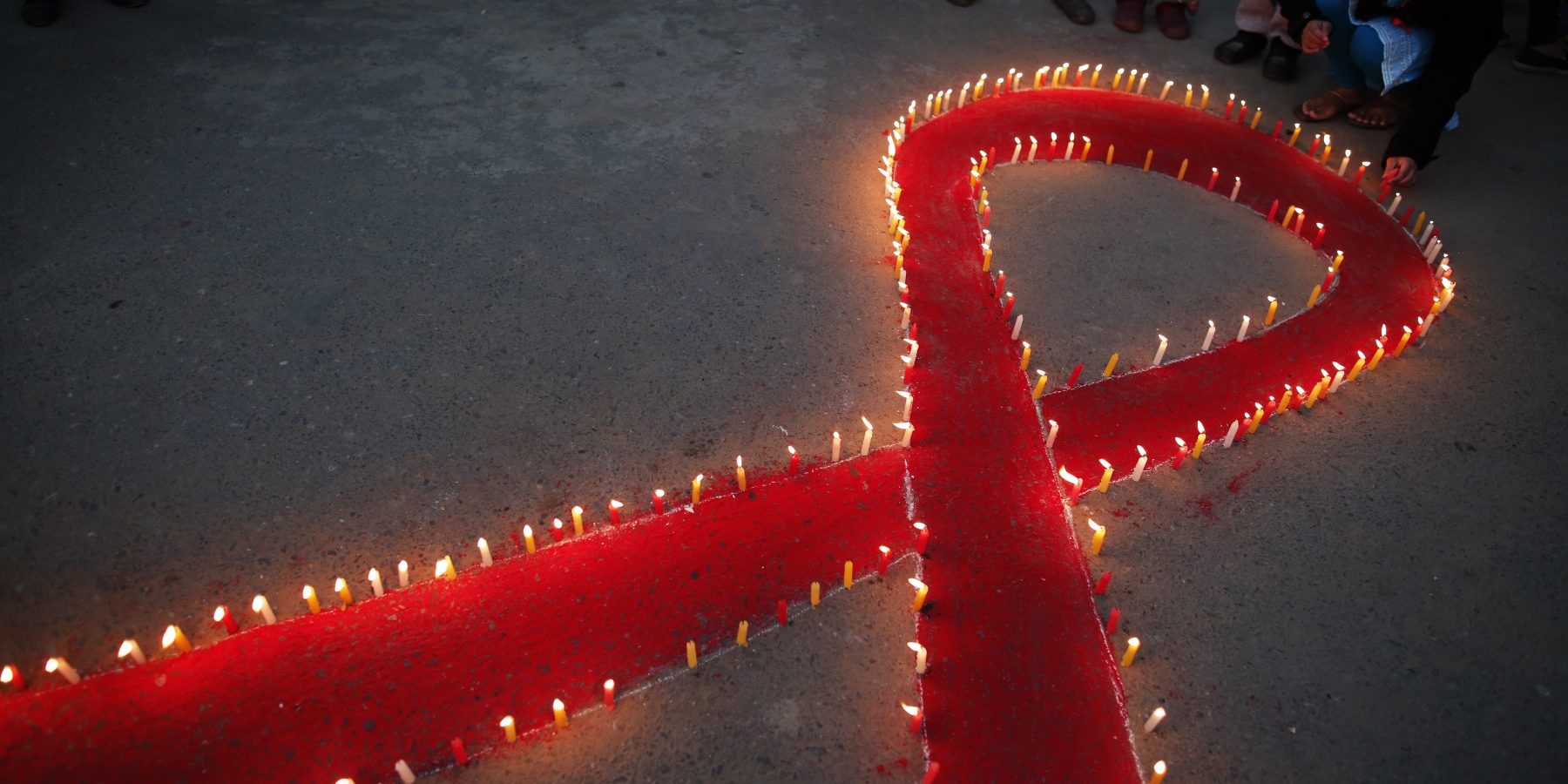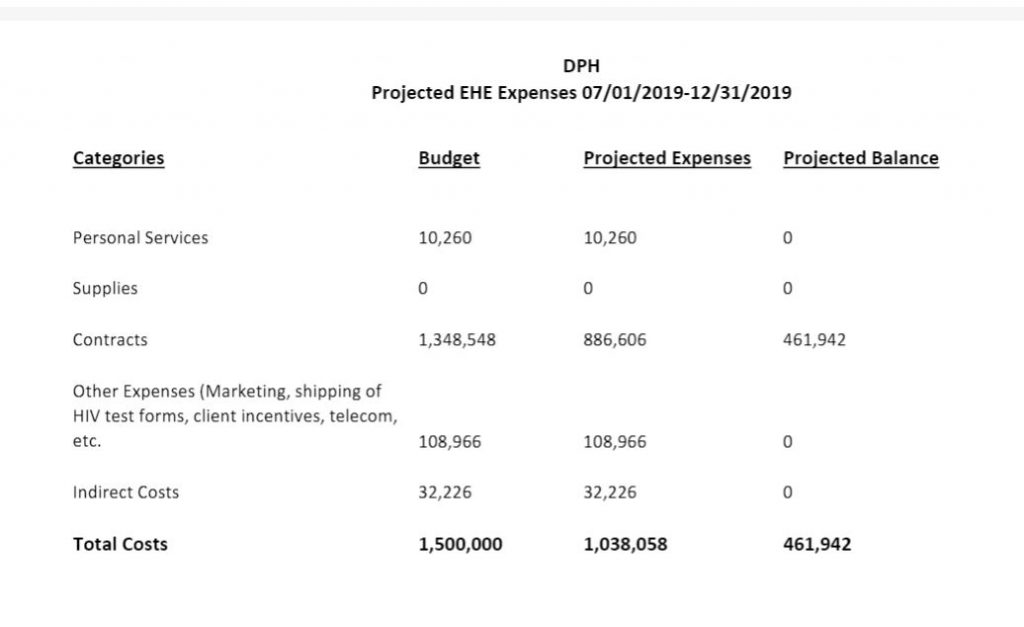Georgia, DeKalb Could Lose Nearly $500,000 In Federal HIV Prevention Funding

Earlier this year, the federal public health agency named DeKalb County as one of four pilot sites to test public health strategies outlined in President Donald Trump’s “Ending the HIV Epidemic” plan.
NIRANJAN SHRESTHA / Associated Press
Close to one-third of a $1.5 million federal grant meant to fund HIV prevention efforts in DeKalb County could go unspent by an end-of-the-year deadline, state records show.
Budget documents from the Georgia Department of Public Health, which won the money from the Centers for Disease Control and Prevention to fund projects in DeKalb, show a projected balance of almost $462,000 when the grant expires at the end of December.
Unless federal officials extend the funding deadline, both the county and the state could lose that money.
“The DeKalb County Board of Health is actively working with our state and federal partners to identify fiscally responsible and client-focused opportunities to utilize the remaining funds,” a spokesman said in a written statement.
He said the county expects to have to send back any unspent funds unless federal officials grant an extension for the award. A spokeswoman for the Georgia Department of Public Health said the agency will ask to keep any unused funds, through that decision ultimately lies with the CDC.
The agency says there are “mechanisms” in place for grant recipients to request extensions, but declined to provide specific details.
Earlier this year, the federal public health agency named DeKalb County as one of four pilot sites around the country to test public health strategies outlined in President Trump’s “Ending the HIV Epidemic” plan.
As a result, the Georgia Department of Public Health was awarded a $1.5 million, six-month grant to fund quick-start, innovative initiatives in the county. The state kept $594,932 for projects and passed on $905,068 to the DeKalb Board of Health for their efforts.
Both state and county records show hundreds of thousands of dollars will likely go unspent by the end of the year when the grant expires, though exactly how much is unclear.
 “Records obtained from the Georgia Department of Public Health project a balance of $461,942 when a Centers for Disease Control and Prevention grant to fight HIV in DeKalb County ends on December 31, 2019. State officials say they’ll have to send that money back unless the CDC offers to extend the grant. (Georgia Department of Public Health)Projections from the Georgia Department of Health put the final unspent balance at $461,942. Estimates from the DeKalb County Board of Health put the final unspent balance at $259,272.
“Records obtained from the Georgia Department of Public Health project a balance of $461,942 when a Centers for Disease Control and Prevention grant to fight HIV in DeKalb County ends on December 31, 2019. State officials say they’ll have to send that money back unless the CDC offers to extend the grant. (Georgia Department of Public Health)Projections from the Georgia Department of Health put the final unspent balance at $461,942. Estimates from the DeKalb County Board of Health put the final unspent balance at $259,272.
“Hearing any person, any group send that much money back… it makes me think of all the things that we could do with that,” said Larry Scott-Walker, co-founder of Thrive SS, an Atlanta-based support group for gay black men living with HIV.
Scott-Walker said a lot of the work his organization does–connecting people with health care, running a food pantry–goes unfunded. Thrive SS did not receive any money from the CDC grant.
Scott-Walker’s group was one of many that expressed concerns about the award process in a letter to CDC Director Dr. Robert Redfield earlier this year.
It argued for more transparency on how DeKalb was selected to receive the grant money and for greater inclusion of those in the community most impacted by HIV.
Both the DeKalb and the Georgia health departments relied on “several well-established relationships” when allocating the funds, according to a document outlining how the state would spend the grant. That meant “expanding and amending current contracts” with organizations that already worked with the county.
“It’s a real challenge to try to spend that volume of money purposefully,” said Dr. Sandra Ford, with the DeKalb County Board of Health, who attributed the contract decisions to the limited amount of time her agency and the state had to use the funds.
“You don’t want to not spend it,” she continued, “but you also want to be thoughtful about what you spend it on.”
The county did put their money to some new projects, such as providing resources to HIV-positive individuals in the DeKalb jail. It also established the county’s first clinic focused on providing pre-exposure prophylaxis (PrEP) therapies to people at high risk of contracting HIV.
The state also directed money to Emory University to open a new sexual health clinic that provides HIV testing and referrals to other health care services.
Ford worries about the sustainability of those efforts with grant funding set to expire at the end of the year and no guarantee of more time to spend it.
And there’s more financial uncertainty on the horizon for DeKalb and the dozens of other jurisdictions around the country where the Trump Administration is targeting its longer-term HIV prevention, among them Cobb, Fulton, and Gwinnett counties.
The fiscal year 2020 budget for the U.S. Department of Health and Human Services includes $291 million to fund projects across the country, but that spending bill has been stalled in the U.S. Senate since June.





